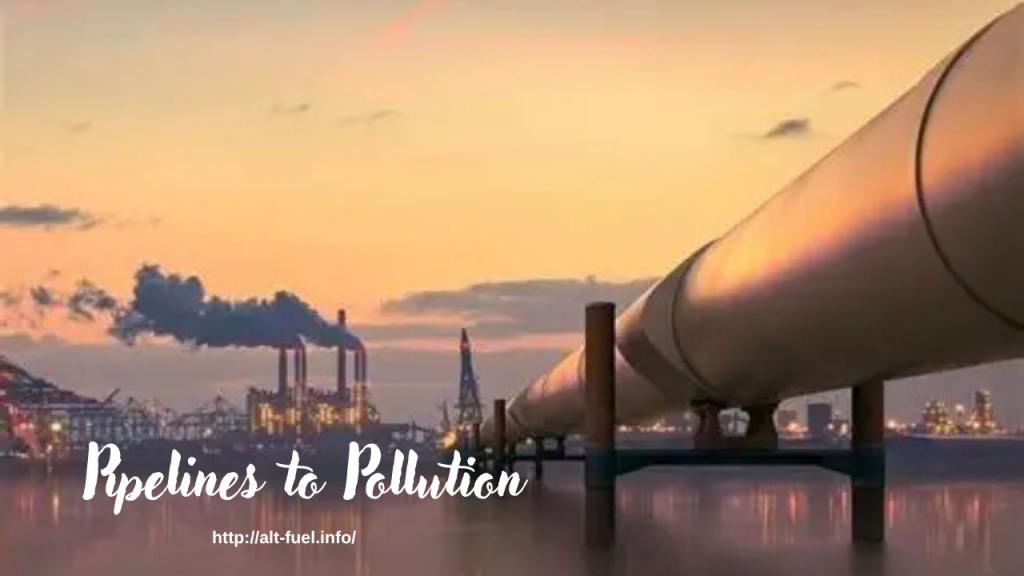
North America’s dependence on oil may power daily life, but it comes with a heavy ecological toll—one that mirrors the often invisible costs of personal addiction. Just as untreated substance use can erode physical health, relationships, and self-worth, oil dependence steadily degrades our land, air, and water. Understanding this link can open a broader conversation about healing—both individually and environmentally.
At alt-fuel.info, we recognize the parallels between personal recovery and environmental responsibility. Healing isn’t just personal. It’s also collective. The same compassionate, holistic principles that guide addiction recovery can inspire the way we treat our planet.
The Journey of Oil: From Extraction to Exposure
The Cost of Digging Deeper
Oil extraction may begin underground, but its impact travels far beyond the drill site. Whether it’s through offshore rigs, fracking wells, or cross-country pipelines, each method of harvesting oil leaves behind environmental scars. Habitats are disrupted. Water tables are contaminated. Communities—often rural, Indigenous, or economically disadvantaged—face increased risk of pollution and displacement.
Much like substance use creates ripple effects within families, oil production damages not just the source but everything connected to it.
Pipelines: Infrastructure or Invasion?
Pipelines are often marketed as efficient solutions for oil transport, but they are also frequent sources of leaks and spills. These spills can contaminate rivers, destroy local ecosystems, and lead to long-term soil degradation. The psychological toll on nearby communities—who often feel unheard or dismissed—reflects the emotional trauma felt by those struggling with addiction in silence.
The lesson is clear: when we ignore harm at its source, the damage only grows.
The Aftermath: Pollution in Our Daily Lives
Air and Water Quality at Risk
Burning oil releases toxic pollutants into the air, contributing to respiratory diseases, heart conditions, and premature death. In many cases, these pollutants disproportionately affect communities already struggling with health disparities and limited access to care. Polluted water, especially from oil spills or runoff, threatens drinking sources and aquatic life.
This chronic exposure is like untreated trauma. Left unaddressed, it poisons the system over time, reducing resilience and increasing vulnerability.
Environmental Injustice and Mental Health
The emotional toll of environmental degradation cannot be overlooked. Communities that live closest to extraction and pollution sites often suffer from stress, anxiety, and grief. The loss of clean environments, cultural landmarks, or safe neighborhoods mirrors the emotional and spiritual losses experienced in addiction.
At alt-fuel.info, we believe that holistic recovery includes addressing all aspects of suffering—physical, emotional, and environmental.
Pathways to Healing: Breaking Free from Oil Dependence
Building a Future Rooted in Recovery and Renewal
Just as addiction recovery involves practical steps like therapy, support groups, and medical care, breaking free from oil requires actionable alternatives. Investment in clean energy, public transportation, and sustainable infrastructure can replace destructive cycles with empowering ones.
Communities that once depended on oil can transition to jobs in renewable industries. Individuals can make changes, too—choosing greener transportation, supporting environmental policies, and educating others about the impact of oil.
Healing starts with awareness, but it continues through intentional, compassionate action.
Conclusion: Choosing Recovery—for Ourselves and the Planet
Our relationship with oil has become toxic. It is rooted in short-term comfort but sustained by long-term harm. At alt-fuel.info, we understand how difficult it is to break a pattern that once seemed necessary. But just as we guide individuals through addiction recovery with personalized, faith-based care, we also believe in guiding society toward environmental healing with hope and clarity.
If you or someone you love is struggling with the burden of addiction—whether personal or environmental—we invite you to take the next step. True recovery is possible. It begins with compassion, it grows through connection, and it succeeds with support.
Reach out today. Let’s heal together.